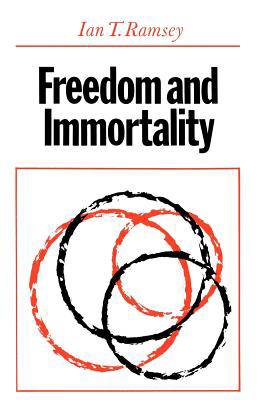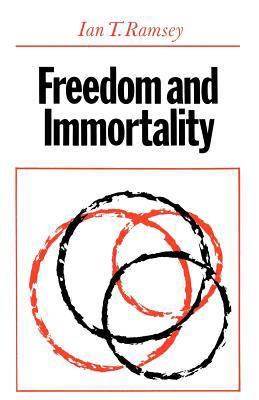
Door een staking bij bpost kan je online bestelling op dit moment iets langer onderweg zijn dan voorzien. Dringend iets nodig? Onze winkels ontvangen jou met open armen!
- Afhalen na 1 uur in een winkel met voorraad
- Gratis thuislevering in België vanaf € 30
- Ruim aanbod met 7 miljoen producten
Door een staking bij bpost kan je online bestelling op dit moment iets langer onderweg zijn dan voorzien. Dringend iets nodig? Onze winkels ontvangen jou met open armen!
- Afhalen na 1 uur in een winkel met voorraad
- Gratis thuislevering in België vanaf € 30
- Ruim aanbod met 7 miljoen producten
Zoeken
Freedom and Immortality: The Forwood Lectures in the University of Liverpool 1957
Ian T Ramsey
€ 37,45
+ 74 punten
Omschrijving
Like the Bishop of Durham's well-known Religious Language, this book was first published in the 1950s, well ahead of its time. In six lectures, Dr Ramsey takes together the two key ideas in the Christian understanding of man indicated by the title, and shows in discussing them that many of the common objections to claims of freedom and talk of immortality are in fact misconceptions, 'logical howlers'. `This is a book which should be compulsory reading in theological colleges', wrote Theology when it first appeared, and in The Expository Times, John Macmurray commented, 'In spite of the weighty theme, the manner of the book is simple and clear. The writing is quite free of jargon, kept down to earth by homely illustration and adorned by wit. It should be carefully read and then read carefully again.' No one, ' wrote H. D. Lewis in The Hibbert Journal, 'who wishes to examine the problems of freedom and immortality, as they appear today, can afford to neglect this book.'
Specificaties
Betrokkenen
- Auteur(s):
- Uitgeverij:
Inhoud
- Aantal bladzijden:
- 158
- Taal:
- Engels
- Reeks:
- Reeksnummer:
- nr. 1957
Eigenschappen
- Productcode (EAN):
- 9780334004998
- Verschijningsdatum:
- 30/04/2012
- Uitvoering:
- Paperback
- Formaat:
- Trade paperback (VS)
- Afmetingen:
- 140 mm x 216 mm
- Gewicht:
- 190 g

Alleen bij Standaard Boekhandel
+ 74 punten op je klantenkaart van Standaard Boekhandel
Beoordelingen
We publiceren alleen reviews die voldoen aan de voorwaarden voor reviews. Bekijk onze voorwaarden voor reviews.











